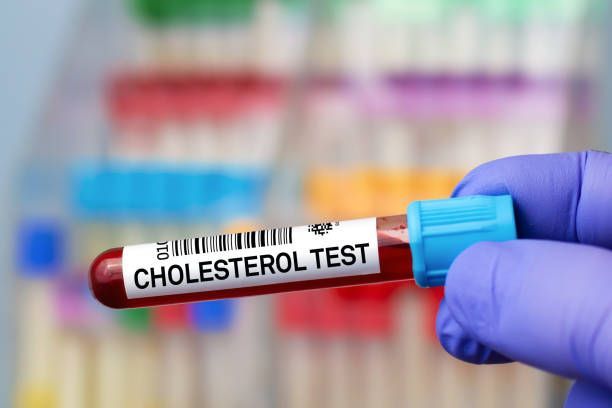Understanding Eczema: Manage and Relieve Symptoms Effectively
Eczema, also referred to as atopic dermatitis, is a chronic skin condition affecting millions worldwide. Characterized by itchy, inflamed, and often painful skin, eczema can significantly impact an individual's quality of life.
Understanding eczema is the first step in effective management and symptom relief. This blog will explain everything you need to know about eczema, including its types and treatment options. Whether you are living with eczema or caring for someone who is, our guide will equip you with the knowledge needed to manage this condition effectively. Don’t hesitate to visit an urgent care clinic to discuss your skin concerns in a timely manner.
What is Eczema
Eczema is a chronic skin condition that causes inflammation, redness, and intense itching. The non-contagious disorder can affect individuals of any age, but it commonly begins in childhood and can persist into adulthood. Eczema primarily affects the skin's ability to retain moisture, leading to dryness and vulnerability to irritants and allergens. This leads to an itchy rash anywhere on the body but is commonly located on the hands, feet, or behind the knee. Stress, environmental conditions, and exposure to irritants can trigger flare-ups.
Because it's a chronic condition, it is not inherently curable, but it is treatable. While there may be no direct cure for eczema, effective management involves a combination of skincare routines, medications, and lifestyle adjustments.
Types of Eczema
Eczema is more of a category of conditions rather than a condition itself. It encompasses several different types, each with unique characteristics and triggers. Understanding the various forms of eczema is essential for effective diagnosis and management. The main types of eczema include:
Atopic Dermatitis
Atopic dermatitis is the most common form of eczema, often starting in childhood and potentially lasting into adulthood. It is associated with other atopic conditions, such as asthma and hay fever. Classic symptoms include dry, itchy skin and red, inflamed patches, typically on the face, hands, feet, and behind the knees. Genetic factors and environmental triggers play significant roles in its development.
Contact Dermatitis
As the name suggests, you can get contact dermatitis begins when the skin comes into direct contact with an irritant or allergen. With this, are two types: irritant contact dermatitis and allergic contact dermatitis. Symptoms include redness, itching, and blisters at the site of contact. Common triggers include soaps, detergents, and certain metals.
Dyshidrotic Eczema
Dyshidrotic eczema also affects the hands and feet, but instead of a dry rash, its main symptom is small, itchy blisters. The exact cause is unknown but thought to be linked to stress, allergies, or moist environments. The blisters can be painful and cause the skin to crack and peel.
Nummular Eczema
Nummular eczema presents as round, coin-shaped spots on the skin. These patches are often itchy and can become scaly or crusty. It is more common in adults and can be triggered by dry skin, insect bites, or injuries.
Seborrheic Dermatidis
Seborrheic dermatitis affects areas of the body with a high number of oil glands, such as the scalp, face, and upper chest. It results in flaky, greasy patches of skin, commonly known as dandruff when it affects the scalp. The exact cause is not understood, but it could be related to a combination of genetic and environmental factors.
Stasis Dermatitis
Stasis dermatitis happens in the lower legs due to poor circulation. Symptoms include swelling, redness, itching, and the development of ulcers in severe cases. It is more common in older adults and people with varicose veins or other circulatory issues.
Getting Diagnosed with Eczema
Getting diagnosed with eczema at an urgent care center involves a comprehensive evaluation by a healthcare provider to determine the specific type and appropriate treatment plan. The process typically starts with a clinical evaluation, where the provider examines the affected skin areas, looking for common symptoms such as redness, itching, and inflammation. A detailed medical history is also taken, including any family history of eczema or other atopic conditions, as well as potential environmental or lifestyle triggers.
To confirm the diagnosis, additional tests may be performed. Allergy tests can help identify specific allergens that might be contributing to flare-ups. In some cases, a skin biopsy may be necessary, where a small sample of skin is taken and examined under a microscope to rule out other conditions and confirm eczema.
Accurate diagnosis is required for proper management of eczema, allowing for tailored treatment strategies that address the individual's specific needs and triggers. If you notice any skin rash, don’t hesitate to visit your local urgent care center to find the root cause.
Treatment for Eczema
After properly diagnosing a type of eczema, your providers will develop an appropriate treatment plan for your condition and lifestyle. Keep in mind that treating eczema often requires multiple approaches. Since there’s no cure, the primary goal is to manage your symptoms, reduce inflammation, and prevent flare-ups.
Topical Creams
Regular moisturizer application is a key practice to keep the skin hydrated and create a barrier against irritants, which is crucial in managing eczema. Corticosteroid creams are often prescribed to reduce inflammation and itching during flare-ups, while calcineurin inhibitors, such as tacrolimus and pimecrolimus, are non-steroidal creams that help manage inflammation, especially on sensitive areas like the face and eyelids.
Oral Medications
Oral regimens typically are prescribed for managing more severe cases of eczema. For example, antihistamines can help reduce itching and improve sleep by minimizing nighttime scratching. Antibiotics can be prescribed if there is a secondary bacterial infection, while immunosuppressants like cyclosporine or methotrexate are used for severe cases to suppress the immune system’s overactivity.
Light Therapy
Phototherapy, involving controlled exposure to ultraviolet (UV) light, can reduce inflammation and improve skin condition. This treatment is typically conducted under medical supervision and is effective for patients who do not respond well to topical treatments or oral medications.
Home Care
Implementing proper hygiene is essential for managing eczema. Gentle skincare routines, using mild soaps, and avoiding hot water baths can prevent the skin from drying out. Identifying and avoiding personal triggers, such as certain fabrics, soaps, or foods, is also crucial. Stress management skills like mindfulness, meditation, and yoga can also help reduce stress, which is a known trigger for eczema flare-ups.
Regular follow-ups with a healthcare provider can give you the leeway to adjust your treatment as needed for optimal management.
Treat Your Eczema Today
Managing eczema involves a multifaceted approach, including topical treatments, oral medications, light therapy, and home care practices. By understanding and addressing the condition's triggers and symptoms, individuals can significantly reduce flare-ups and improve their quality of life.
If you or a loved one is struggling with eczema, consider seeking professional advice for a tailored management plan from an urgent care services provider. At UrgiClinic Urgent Care, we are here to help you achieve healthier skin and better overall well-being. Schedule an appointment today to begin your eczema management.













